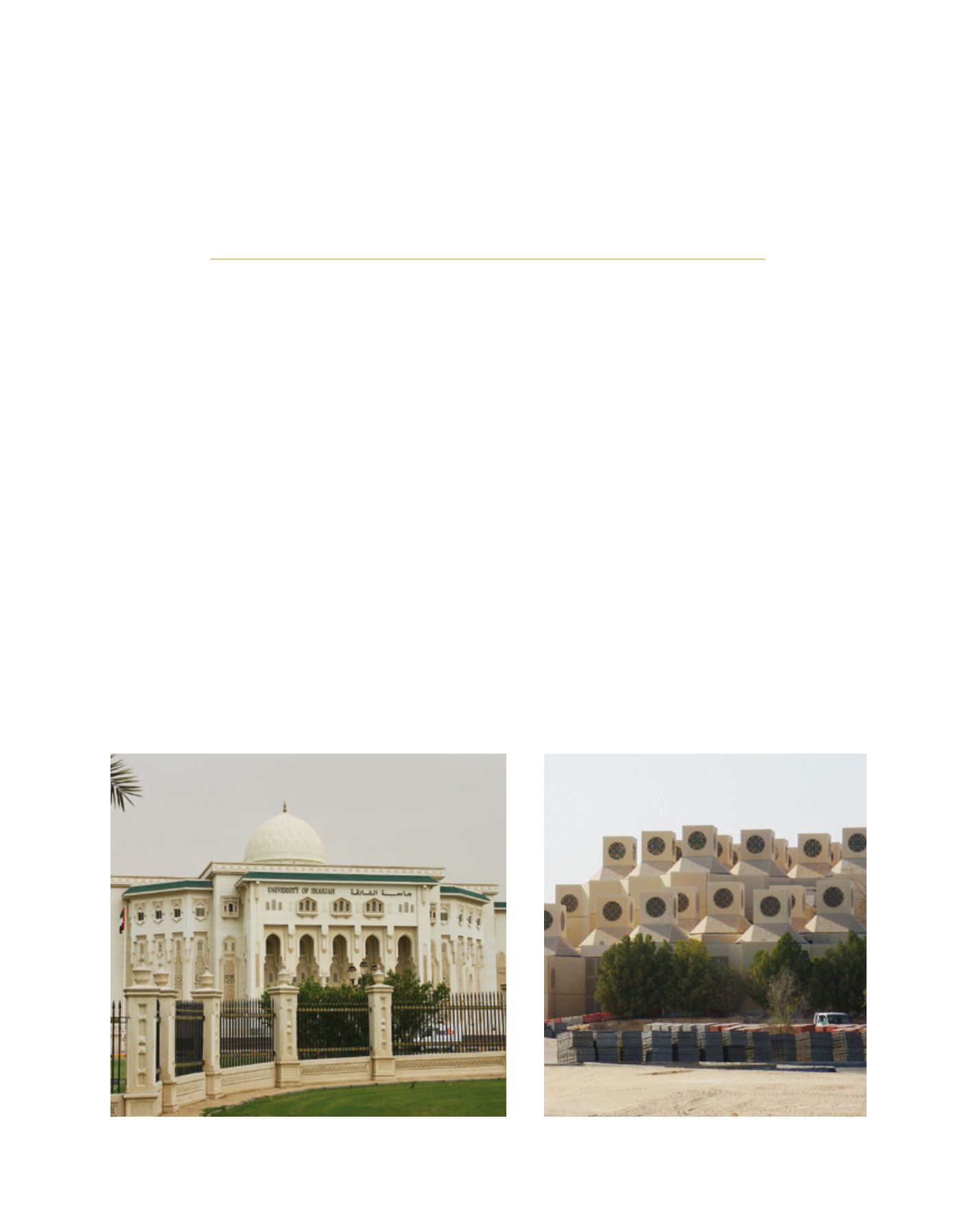

[
] 163
Education for sustainable development
in higher education:
the experience of Gulf universities
Ali Alraouf, Qatar University, Doha, Qatar
F
or several decades, the six member states of the Gulf
Cooperation Council (GCC), Bahrain, Kuwait, Oman, Qatar,
Saudi Arabia and the United Arab Emirates, have witnessed a
tremendous transformation of almost all aspects of socio-economic
and political life. In the closing years of the millennium, the Gulf
societies looked very different from what they were in the after-
math of the Second World War. One of the most salient, and least
analysed, developments is the change in their educational systems.
By the late 1990s, the great majority of young Gulf citizens had the
opportunity to receive formal education. Furthermore, the literacy
rate among adults has more than doubled in the last few decades.
This dramatic shift in the educational system of the Gulf States has
put more pressures on these states to go further with educational
reforms. The need to reorient education to address sustainability
has grabbed international attention, but the need to deal with it at
the university level in the Gulf region is just as great as anywhere.
While many nations around the world have embraced the need for
education to achieve sustainability, only limited progress has been
made. In some cases, a lack of vision or awareness has impeded
progress – in others, a lack of policy or implementa-
tion.
Education, sustainability and the Gulf universities:
clarity of definitions
Observations of how sustainability is perceived and inter-
preted in academia throughout the Gulf States suggest
a tangible lack of clarity. Gulf universities are confused
regarding the interchangeable nature of the key concepts
– sustainability of education, education for sustainability
and education for sustainable development (ESD) – that
relate education to sustainability. ESD is the term most
used internationally and by the United Nations. Agenda
21 was the first international document that identified
education as an essential tool for achieving sustainable
development and highlighted areas of action for educa-
tion.
1
Without a material system capable of functioning
for a long time, there is nothing to sustain. This is, of
course, the literal and pragmatic conceptualization
ESD teaching and research in Gulf universities is not very well developed
Qatar has established a department of architecture and urban planning
Image: Qatar Univerity
Image: Qatar Univerity
















